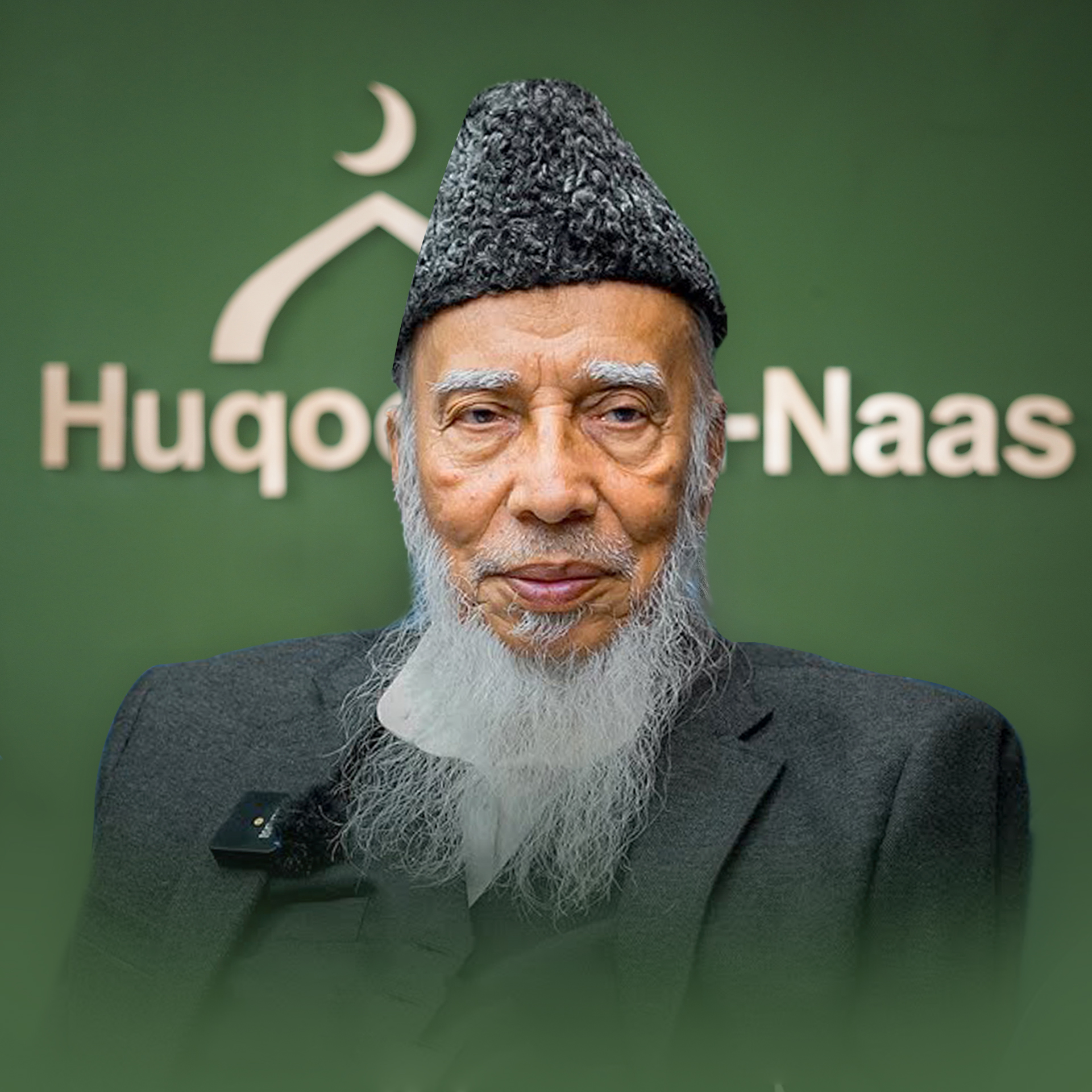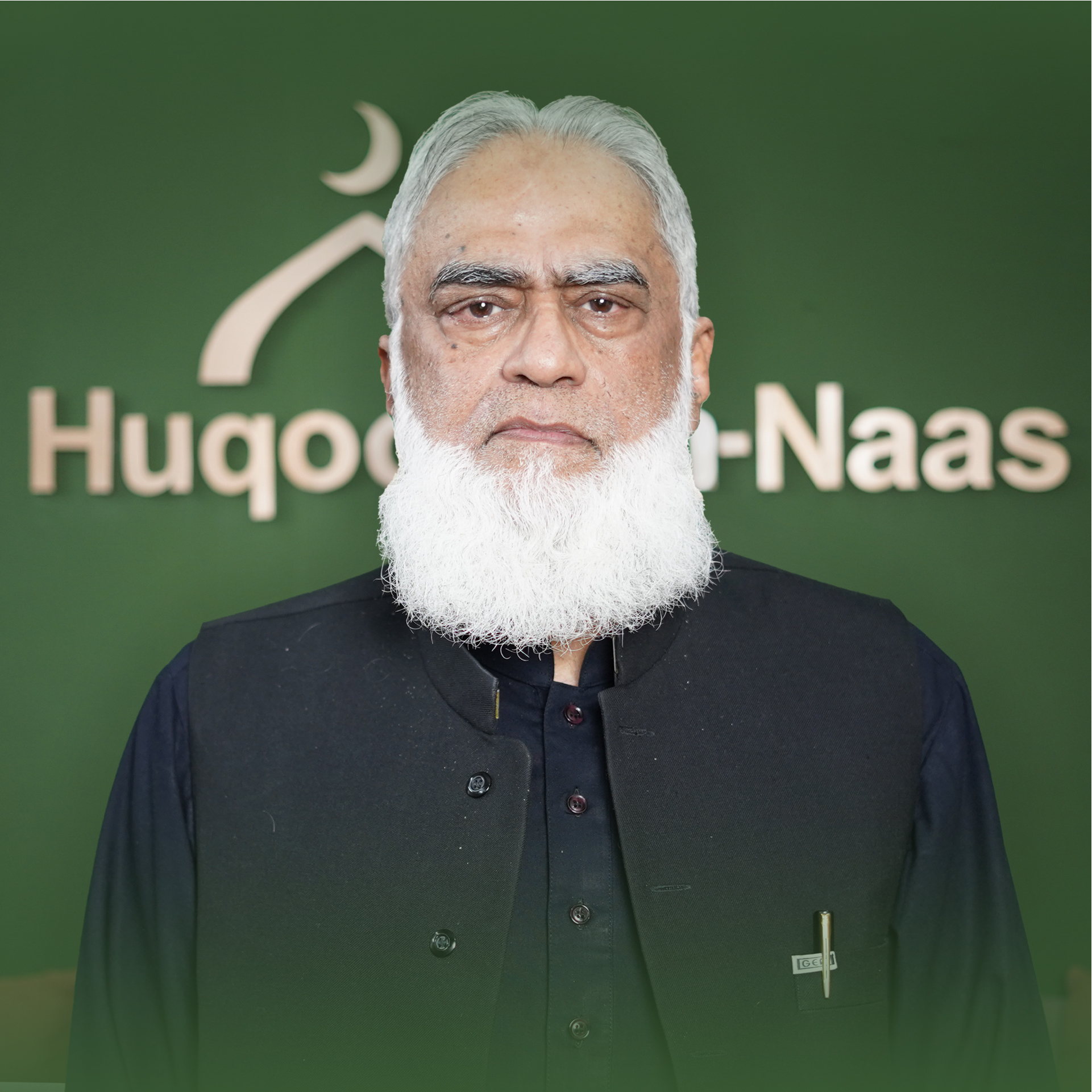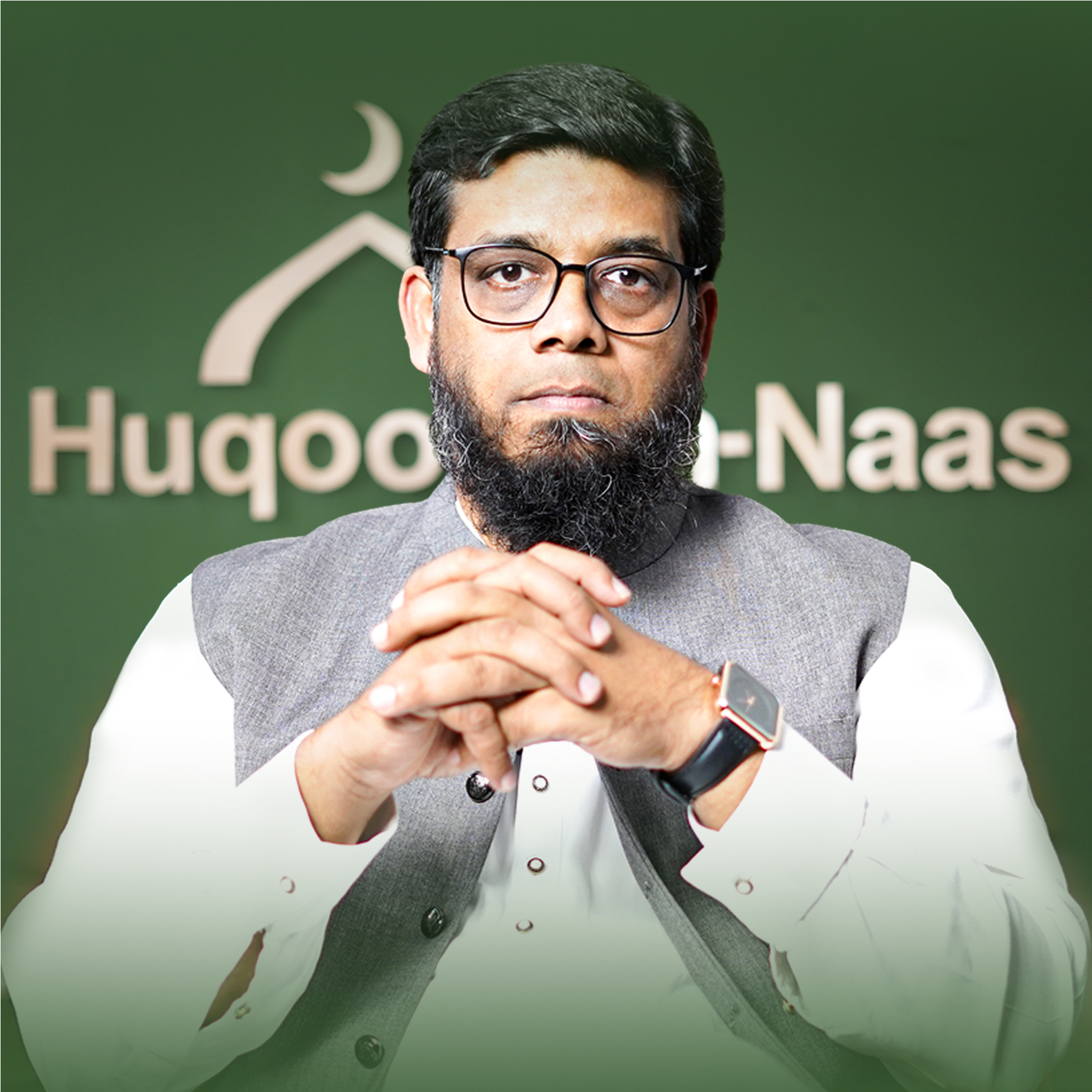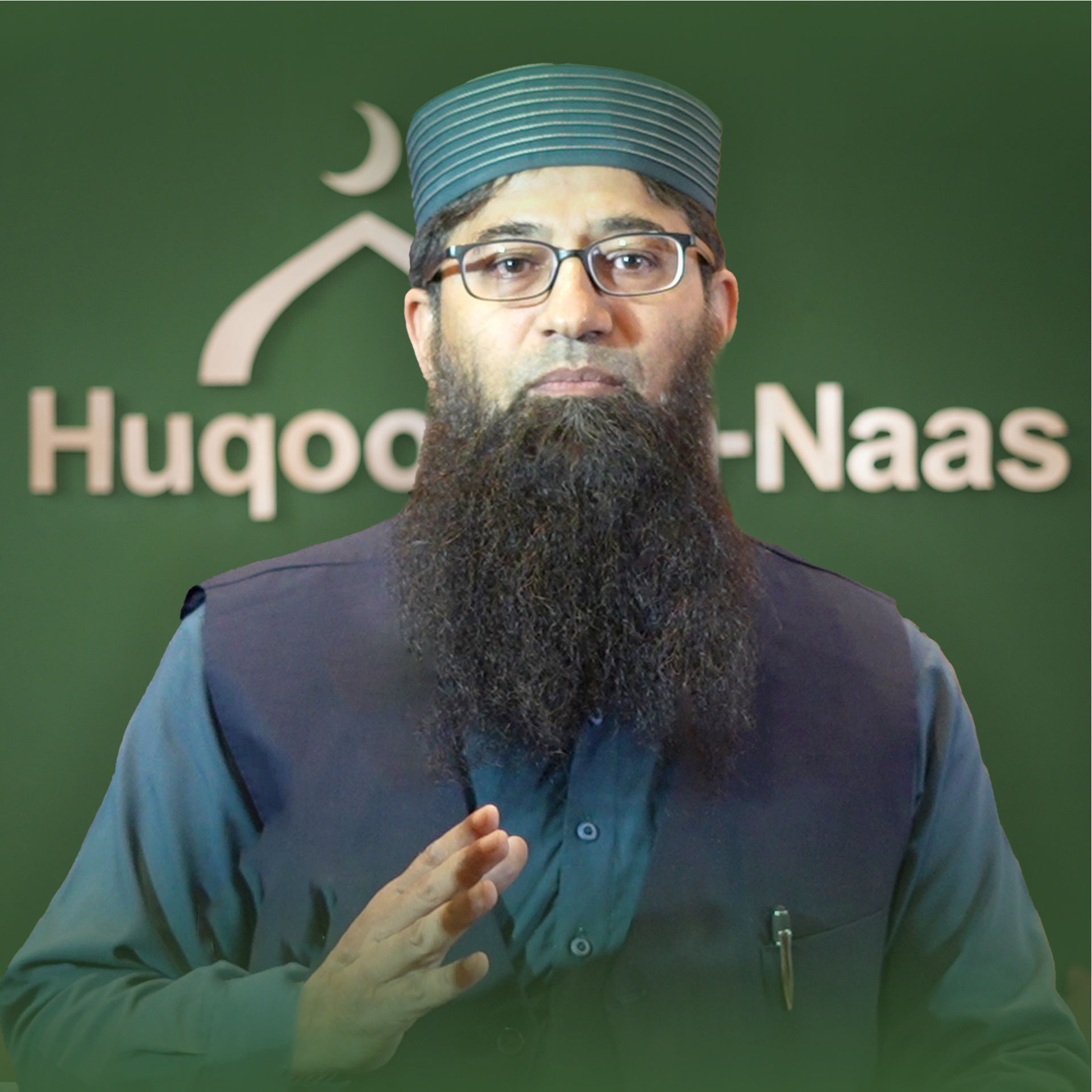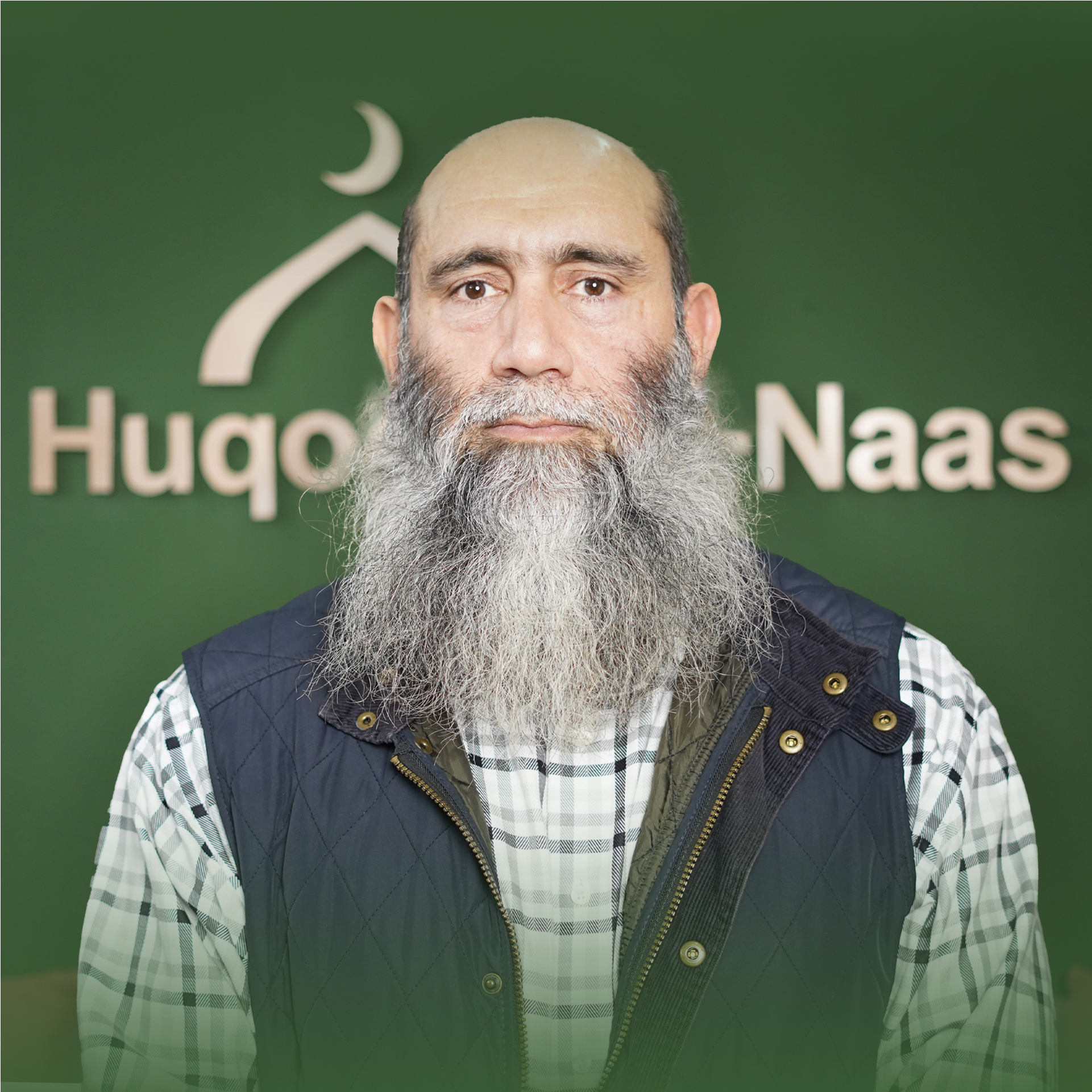- +92 325 79 62 088
The genesis of Huqooq Un Nas is interwoven with the personal odyssey of its founder, Abdul Waris Gill.
Abdul Waris Gill, founder of Huqooq Un Naas, converted to Islam in 2006 after studying the Quran and Prophet Muhammad’s life to challenge Islam, but found contradictions in his Christian beliefs. His journey led to the establishment of Huqooq Un Naas, dedicated to upholding human dignity. Despite challenges, he initiated the first New Muslim Conference in 2009, paving the way for Huqooq Un Naas’ support and education for new Muslims in Pakistan. Gill’s leadership has made the organization a symbol of empowerment for new Muslims nationwide.

Abdul Waris Gill’s journey from Christianity to Islam culminated in 2006, illuminating Islam as the path of truth. Huqooq Un Nas, born from his transformative experience, symbolizes his commitment to human dignity. Facing challenges, Abdul Waris initiated the New Muslim Conference in 2009, leading to Huqooq Un Nas’ inception. Despite opposition, the organization thrived under his visionary leadership, empowering new Muslims and shaping a brighter future in Pakistan
Huqooq Un Nas is committed to educating and protecting new Muslims in Pakistan. It provides shelter, legal support, and welfare services, ensuring their well-being and integration into the community. It aims to create a supportive and secure environment for new Muslims.
Huqooq Un Nas envisions a Pakistan where new Muslims can freely practice Islam without oppression, allowing them to fully embrace life and its blessings. Our vision includes creating a society that welcomes and supports new Muslims, fostering inclusivity and understanding.
The core values of Huqooq Un Naas are as follows:




The core values of Huqooq Un Naas are as follows:

We approach our work with a deep sense of compassion, empathizing with the challenges and experiences faced by new Muslims. We strive to provide support and guidance with kindness, understanding, and a genuine concern for their well-being.

We believe to empower new Muslims to take charge of their own lives to develop a strong sense. Through education, financial support, and practical assistance, we aim to equip individuals with tools and resources to thrive.

We embrace and celebrate diversity within the Muslim community and beyond. We promote inclusivity by providing a safe and welcoming space for new Muslims, irrespective of their cultural backgrounds, ethnicities, or social statuses.

We adhere to the highest standards of integrity, honesty, and transparency in all our endeavors. We are committed to maintaining the trust placed in us by our beneficiaries, donors, and stakeholders by operating with professionalism and accountability.

We recognize the importance of collaboration and partnerships to achieve our mission. We actively seek to collaborate with individuals, organizations, and institutions to share our values to support new Muslims. Maximize our impact and create a more supportive environment for new Muslims.

Recognizing the profound transition a new Muslim embarks upon, we hold a deep understanding of the distinct values and cultural background they bring to this transformative journey. In light of this, our unwavering commitment extends to every facet of their integration.
Female converts encounter significant challenges leaving their familiar homes, navigating relationships with non-believing spouses, and facing custody battles for their children.
Female converts encounter significant challenges leaving their familiar homes, navigating relationships with non-believing spouses, and facing custody battles for their children.
Female converts encounter significant challenges leaving their familiar homes, navigating relationships with non-believing spouses, and facing custody battles for their children.
The path is further complicated by accusations of eloping and ensuing legal battles initiated by their families, adding layers of complexity to their already challenging situation.
Newly converted individuals, whether single or couples, may experience conflicts with family and employers due to differing beliefs, leading to loss of property, employment, and financial stability.
Female converts encounter significant challenges leaving their familiar homes, navigating relationships with non-believing spouses, and facing custody battles for their children.
